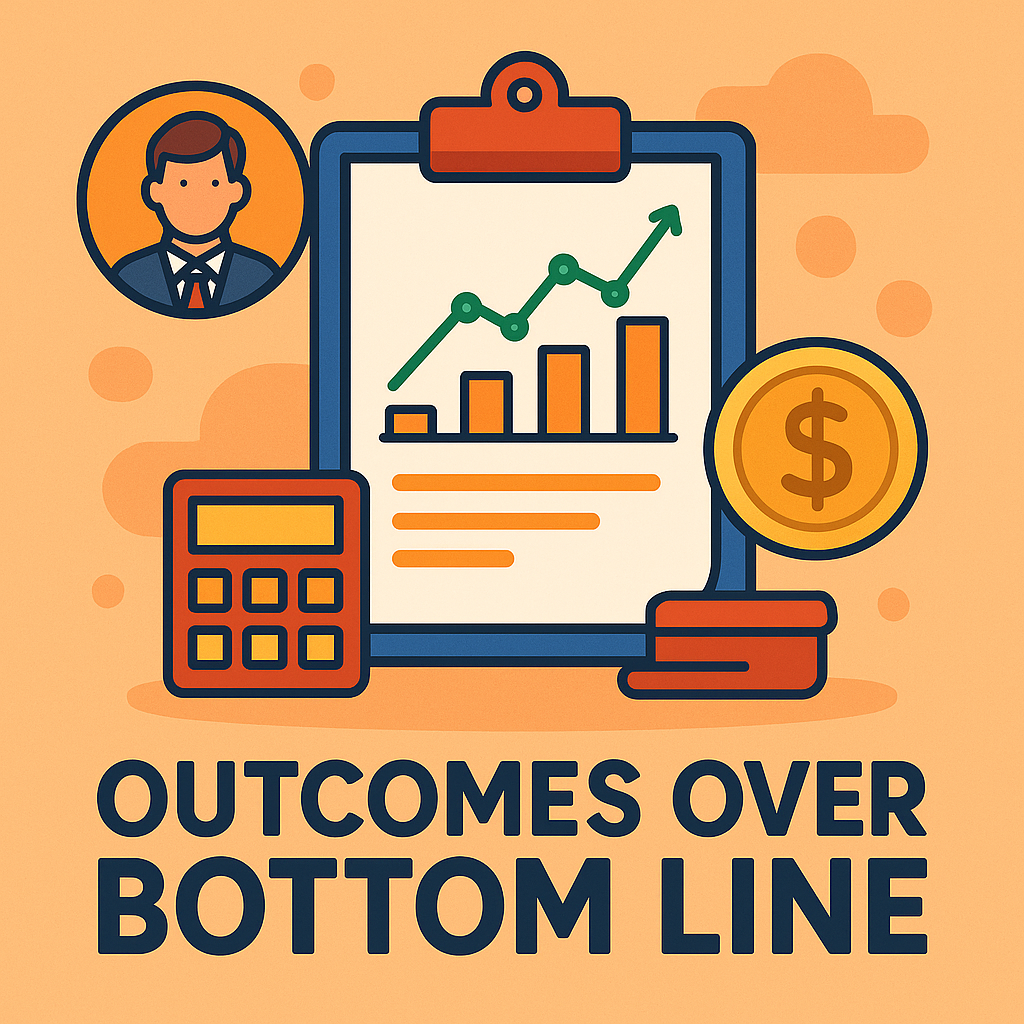Introduction
For most small and midsize businesses, time is the most precious resource. Every hour spent on back-office busywork is an hour not spent serving customers, closing deals, or growing the business.
But here's the mistake many owners and managers make: they treat time like a simple hourly cost. "If I save an hour, I saved $30."
The reality is far more expensive.
When the owner, founder, or manager spends time chasing broken software, switching between too many tools, or fixing mistakes caused by poor systems, that's not a $30 loss. That's a lost customer, a missed opportunity, or delayed growth.
The real question isn't "how many hours did we work?"
The real question is "what outcomes did we achieve?"
The Hidden Cost of Bad Software
1. Hours Without Outcomes
We've all seen it: teams working long hours but producing little progress. Meetings multiply. Reports get generated. Tickets get closed. But if customers aren't happier, revenue isn't growing, and the business isn't stronger - those hours don't matter.
2. Tool Overload = Lost Time
The average SMB uses 10–15 different software tools just to run daily operations. Every login, every manual data entry, every disconnected workflow burns time. And when the person doing that work is the owner or manager, the cost is enormous.
3. Opportunity Costs
The biggest cost isn't the subscription fee or the wasted hours. It's the opportunity you missed while bogged down in inefficiency. That new customer you didn't have time to meet with. That strategic idea you didn't have bandwidth to pursue. Those losses compound.
Why Outcomes Beat Outputs
Most vendors sell outputs - features, dashboards, or activity metrics. But outputs don't pay bills.
- Checking tasks off a list isn't the same as winning new business.
- Generating reports isn't the same as improving customer retention.
- Logging hours isn't the same as reducing costs.
Outcomes are what drive the bottom line.
- Did the process shorten time-to-invoice?
- Did customer satisfaction go up?
- Did revenue per employee increase?
Those are outcomes. And they're the only things that matter.
The Value of Your Time
For small business leaders, time is not a line item. It's leverage.
- One hour spent fixing software glitches = one less hour spent on sales calls.
- One hour entering data in three systems = one less hour nurturing customers.
- One hour fighting inefficiency = one less hour planning for growth.
If you're a founder, owner, or manager, your time is easily worth 10x your "hourly rate." Why? Because you're the only one who can grow the business.
Every hour wasted on bad tools is exponential opportunity lost.
The Fix: Rethinking Technology Through Outcomes
So how do SMBs avoid the trap of wasted hours and misaligned tools? By putting outcomes at the center of every technology decision.
1. Ask the Right Questions
Instead of "What features does this tool have?" ask:
- Will this tool reduce customer churn?
- Will this system shorten our billing cycle?
- Will this platform free leadership time to focus on growth?
2. Count the True Cost
Don't just add up subscription fees. Add up:
- Employee hours wasted on duplication.
- Leadership hours lost to fixing broken systems.
- Customers lost to poor experience.
That's the true cost of bad software.
3. Focus on Simplicity
The fewer tools you need, the better. Integrated platforms cut down on duplication and free teams to focus on work that matters.
4. Measure What Matters
Track cycle time, customer satisfaction, retention, and revenue per employee. Those are the outcome metrics that reveal whether technology is helping or hurting.
5. Protect Leadership Time
Every software decision should be evaluated against one key test: Will this free up the owner/manager's time for higher-value work? If not, it's the wrong solution.
Why This Matters for SMBs
Enterprise companies can afford inefficiency. They have entire departments dedicated to patching over broken systems.
SMBs don't.
For small businesses, wasted hours cut directly into profit. And when it's leadership time that's wasted, growth grinds to a halt.
That's why outcome-driven technology isn't a "nice to have." It's a competitive advantage.
How JD Mitchell Helps
At JD Mitchell, everything we do comes back to outcomes.
- Product: We design tools that eliminate friction, not add to it.
- Platform: Our systems are integrated, scalable, and built to free teams from tool overload.
- Outcomes: We measure success in time saved, customers retained, and growth achieved.
We know the most valuable resource you have is your time. And we're here to protect it.
Conclusion: Time Is Money. Outcomes Are Wealth.
Small businesses can't afford to confuse hours with outcomes. It's not about how busy your team is - it's about what they achieve.
Every wasted hour on bad tools or broken software drains more than payroll. It drains growth, opportunity, and the future you're trying to build.
The bottom line is simple: outcomes pay the bills, not outputs.
At JD Mitchell, we help SMBs reclaim their time, simplify their tools, and focus on results that matter. Because your hours are valuable - but your outcomes are priceless.
Contact us to start making your technology work for outcomes, not just outputs.

